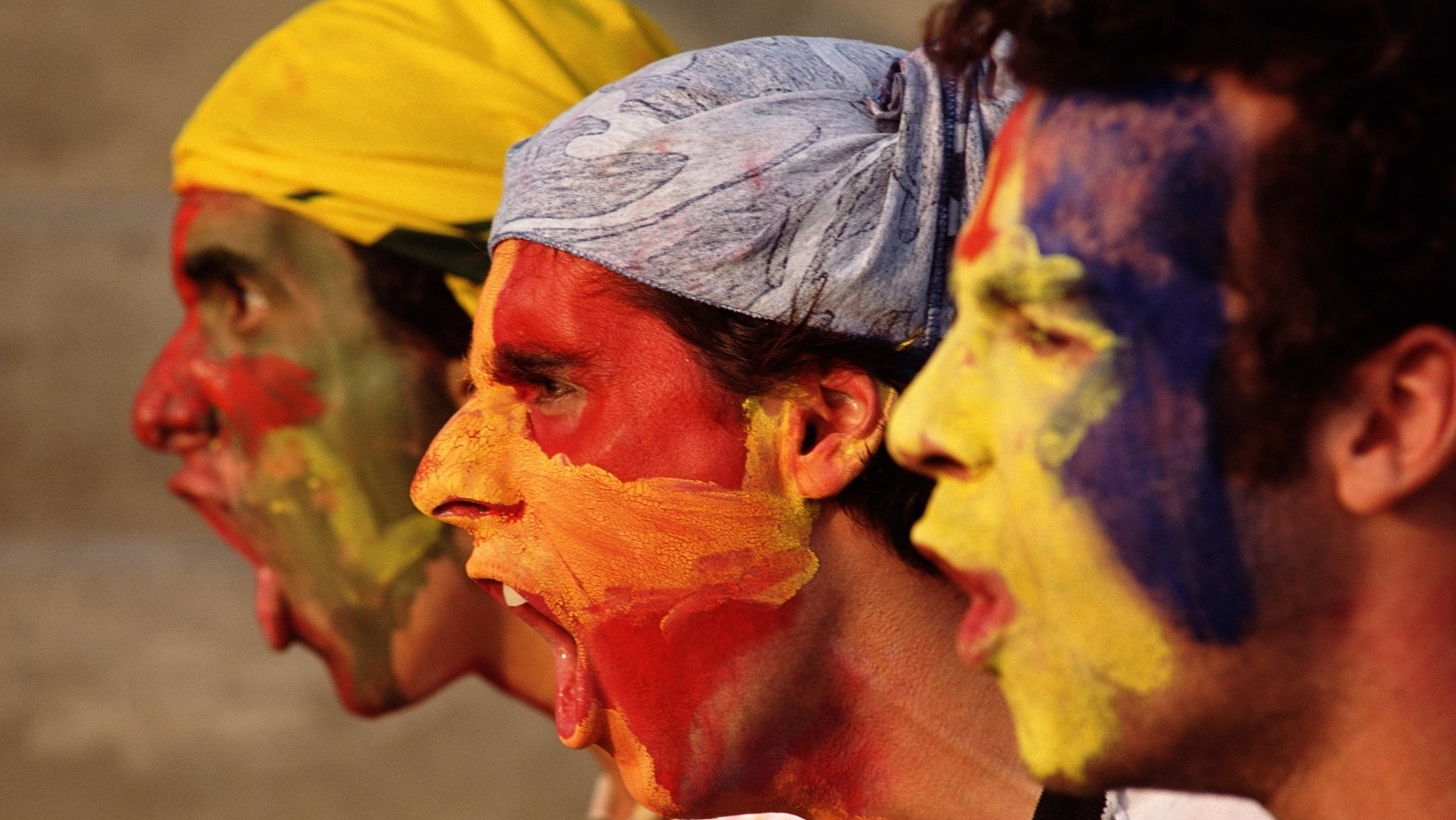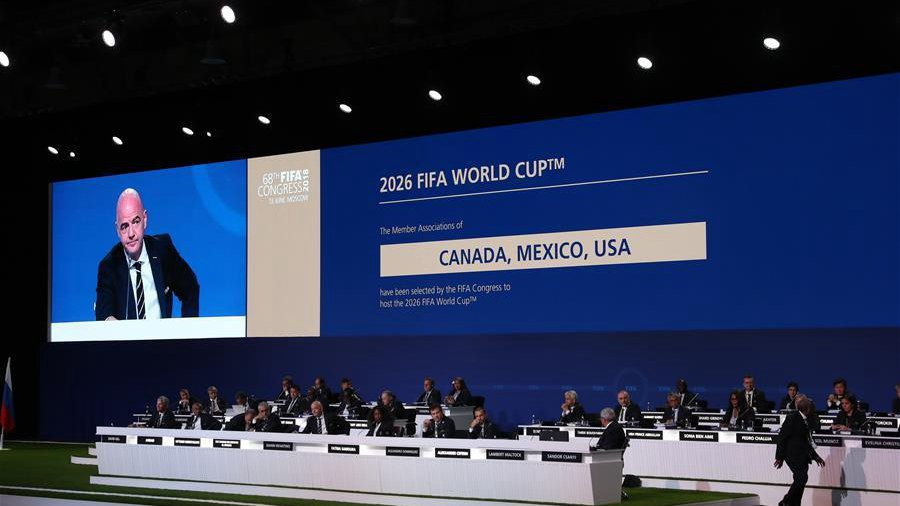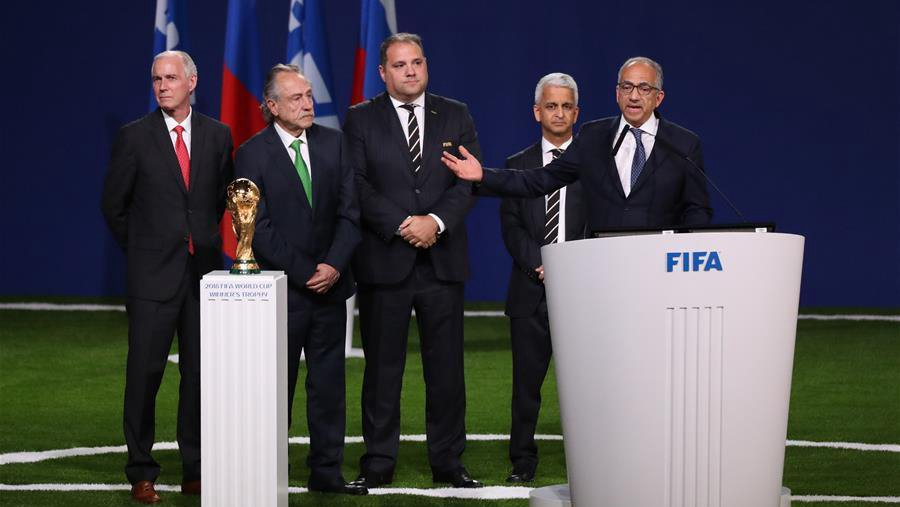
Sports
09:27, 14-Jun-2018
US promises to be very different World Cup host from 1994
CGTN

The World Cup will return to the United States, 32 years after the groundbreaking first tournament in the country, and organizers are promising a very different experience for fans traveling to the country.
The United States, together with Mexico and Canada, won the right to host the 2026 tournament in a FIFA vote on Wednesday in Moscow, beating African rival Morocco.
While Mexico has a lengthy football history with a long-established domestic league and has hosted the World Cup twice before – in 1970 and 1986 – the United States is still viewed as an emerging soccer nation.
The 1994 World Cup in the US set surviving records for attendance figures thanks to the large, mostly NFL, stadiums that were used, but those who traveled to the tournament noted that the local populations were often not fully informed about the sport.
That will not be the case in eight years.
Two years after the 1994 tournament, Major League Soccer was launched and the competition has subsequently grown to 23 teams, with clubs in all regions of the country and Canada.

June 13, 2018: A screen shows Canada, Mexico and the United States winning the joint bid to host the 2026 football World Cup in Moscow, Russia. /Xinhua Photo
June 13, 2018: A screen shows Canada, Mexico and the United States winning the joint bid to host the 2026 football World Cup in Moscow, Russia. /Xinhua Photo
The US national team failed to qualify for Russia 2018, which begins on Thursday, but that was a major surprise for a country that had appeared in every tournament since 1990, reaching the quarter-finals in 2002.
Perhaps most crucially, Americans are no longer isolated from the world game and thousands of them watch Europe's Champions League and England's Premier League, developing a knowledge of the sport and its greatest talents.
American Sunil Gulati, a FIFA vice-president and until recently the president of the US Soccer Federation (USSF), was involved in the 1994 tournament and says visitors in 2026 will find a much more informed public.
"I don't think there is any doubt that the American public is far more soccer literate whether that is because of the World Cup (in 1994) or the presence of MLS or the presence of international soccer on television and the changes in technology and social media that facilitate all of that," he told Reuters.

June 13, 2018: Canada, Mexico and the United States won the joint bid to host the 2026 football World Cup in Moscow, Russia. /Xinhua Photo
June 13, 2018: Canada, Mexico and the United States won the joint bid to host the 2026 football World Cup in Moscow, Russia. /Xinhua Photo
"People are far more literate, far more knowledgeable and far more engaged. That part is great," he added.
The current USSF President Carlos Cordeiro believes the 2026 World Cup will be a "lightning rod" for soccer in the United States.
"It will become sort of a transformational for the sport as kids who are now 8-, 10-, 12-years-old can all dream of potentially playing for a national team," he said.
Former NBA executive Philippe Moggio, now the general secretary of CONCACAF, the regional soccer confederation that includes the US, Mexico and Canada as well as Central American and Caribbean nations, believes Wednesday’s decision will lead to a massive boost for the game in the US.
"I think the '94 World Cup demonstrated what a World Cup can do for soccer in the United States. I think in the next eight years you are going to see tremendous growth in terms not only of talent but from a fan-perspective," he said.
"The passion you are going to see for that World Cup, you combine it with the passion that historically has existed in Mexico, the way Canada is growing, you are going to see a very different environment, a very different experience for visiting fans," he said.
Source(s): Reuters

SITEMAP
Copyright © 2018 CGTN. Beijing ICP prepared NO.16065310-3
Copyright © 2018 CGTN. Beijing ICP prepared NO.16065310-3